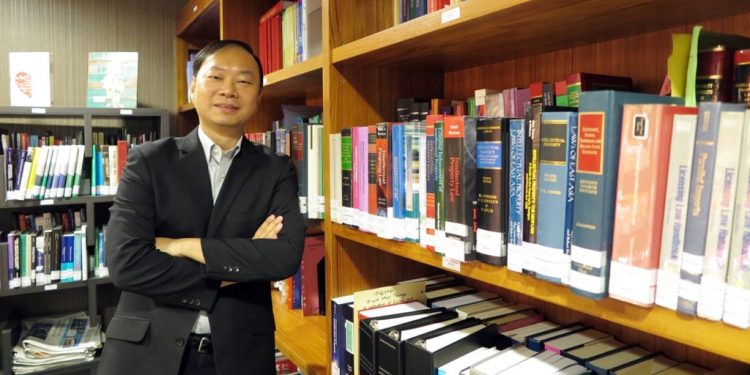What makes Apple products sell? What makes Google so popular? Have a think, you will realise that it is a lot about the technologies, designs and brand stories.
According to an annual study by Ocean Tomo, an advisory firm based in the United States, 87 per cent of 500 large companies’ market value lies in intangible assets. That was in 2015, a spike compared to the 17 per cent in 1975, when many companies invested heavily in factories and machineries.
According to Intellectual Property Office of Singapore (IPOS), intellectual properties (IPs) form a large part of the intangible assets.
Demand for IP Specialists
Propelled by the Government’s $19 billion Research Innovation Enterprise 2020 Plan to boost research and development initiatives, IPOS estimates the demand for IP to grow. Registration rate in Singapore has been healthy.
This means more jobs are coming to the industry. The Government’s updated IP Hub Master Plan targets to double the number of skilled IP professionals to 1000 over the next five years.
“At the research institutes, there is this role called the tech transfer manager. They work closely with the researchers to translate research outcomes into products and services. You can see them as the link between the research community and the enterprises. It’s very specialised. The person on the job needs to understand both technology and research.
“One key job role at the enterprises is the IP Manager who looks at how they can maximise the value of the IPs, and grow the company locally and globally. They plan the licensing, franchising and selling of IPs strategically. Lastly, on the protection front, you have your attorneys, patent and trademark agents, and so on,” said IPOS Executive Director of IP Academy Kok Kitt-Wai.
Mr Kok encouraged fresh graduates and mid-career switchers to consider working with IP. As IP job roles require multiple skillsets, they generally pay about 30 per cent higher than jobs in other industries.
Industry-Relevant Courses
In recent years, Mr Kok observed a trend in cross-sector learning such as tech engineers taking up business courses and lawyers attending technology classes.
Last July, IPOS partnered with Singapore University of Social Sciences to launch a two-year part-time Masters in IP and Innovation Management course that touches on the three overlapping aspects of IP – law, technology and business aspects.
To meet more needs, IPOS has also introduced programmes tagged to trending topics. Some examples are IP and artificial intelligence, IP in cloud, IP in mergers and acquisition and IP in blockchain.
Mr Kok explained: “At the foundational level, professionals should know how to identify IPs and where to seek help. We have some e-learning courses for them. The next level is about acquiring knowledge specific to one’s sector. A teacher for instance, should know about copyright. At the tip of the pyramid is deep-skilling; certifications and further studies for IP practitioners and consultants.”
New SkillsFuture Study Awards
A new SkillsFuture Study Awards for the IP sector administered by IPOS was launched on 31 January 2018. Up to 60 of such awards will be given out.
Successful applicants will each receive $5,000 to defray out-of-pocket expenses associated with their training courses. The award is bond-free and can be used on top of existing Government course fee subsidies such as the SkillsFuture Credit and SkillsFuture Mid-Career Enhanced Subsidy.
Find out more about the application details and supported courses on SkillsFuture’s webpage.

